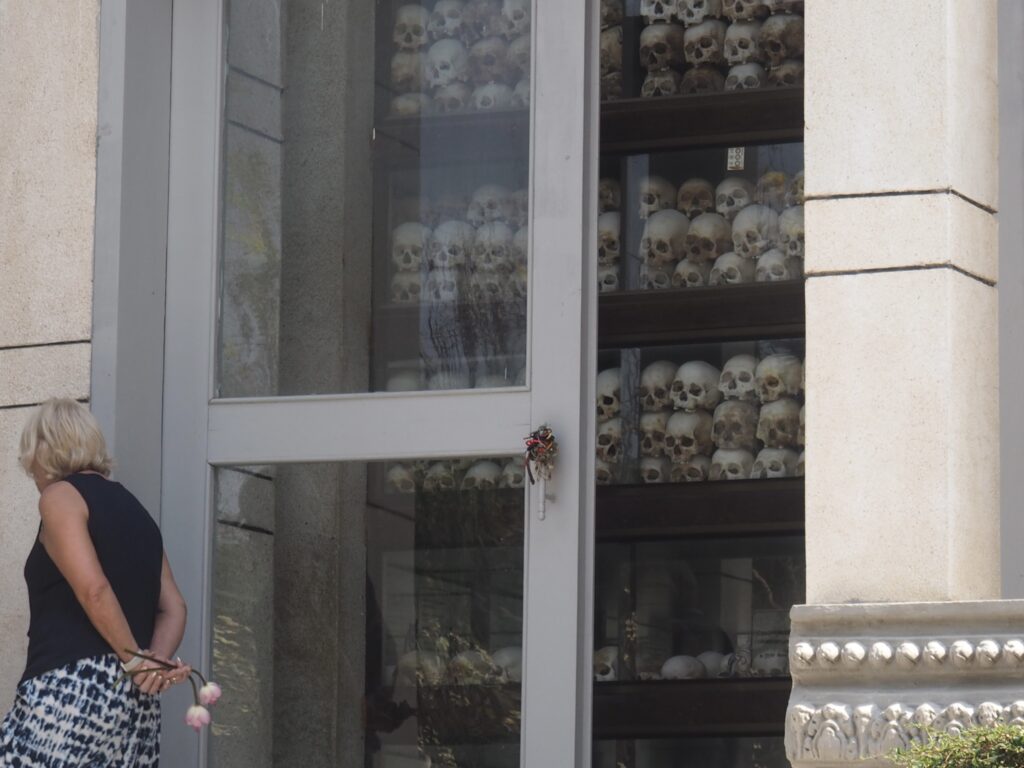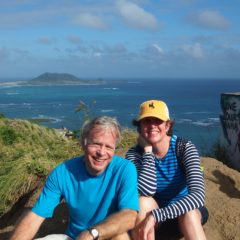And Wish We Didn’t.

The unlikely victors of a civil war against an American backed regime, the Khmer Rouge under Chinese protege Pol Pot seized power in 1975 and proceeded to carry out a plan to transform the country into an egalitarian nation of only farmers, eradicating the educated classes (in other words, an even more ruthless version of the Cultural Revolution, which ended only with Mao’s death in 1976). One quarter of Cambodia’s population died or roughly two million people, of which estimates range from half a million to more than a million by execution. Phnom Penh was evacuated and the people turned into farmers, by force.



Choeung Ek is the best known of the 300 Killing Fields, more or less, and 8,895 bodies have been recovered there. Human bones and tatters of clothing can still be seen on the ground.




As many as 20,000 people were tortured and executed at the Tuol Sleng detention center (one of up to 200 such centers), including both Cambodians and foreigners accused of being CIA. One of only a handful of survivors (and a witness at the genocide trial) is there to speak about his experience.
Our local guide spent much of his childhood at a refugee camp across the border in Thailand where they relied on airdrops of food and supplies for survival. His family fled when they grew concerned that his father’s lies about his occupation would no longer hold up, as more and more people in the village could point a finger and expose him as a teacher. Any education, soft hands, or ability to speak a foreign language, for instance, could be fatal. He took on the identity of a barber.
In 1979 the Vietnamese, with backing from the Soviet Union, invaded and removed Pol Pot from power. A handful of officials were put on trial and convicted of genocide. However, many officials complicit in the genocide remain in power.
The population of Cambodia is now roughly 17 million, although the country continues to suffer from the tremendous loss of an educated class which either fled the country or died there. Our guide was able to obtain an education, including with advanced degrees, and founded a substantial school to teach English and computers in his home village, supplementing the local school. Not much has changed politically as the same people who were Khmer Rouge remain in power and this remains a one party state, though with the apparent rewards of a capitalist economy. So, as our guide advised, the one most important freedom is the freedom of silence and he himself can just as easily be a mechanic, as he was during the pandemic, as a highly educated guide for foreigners.

